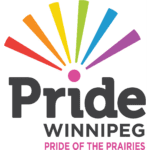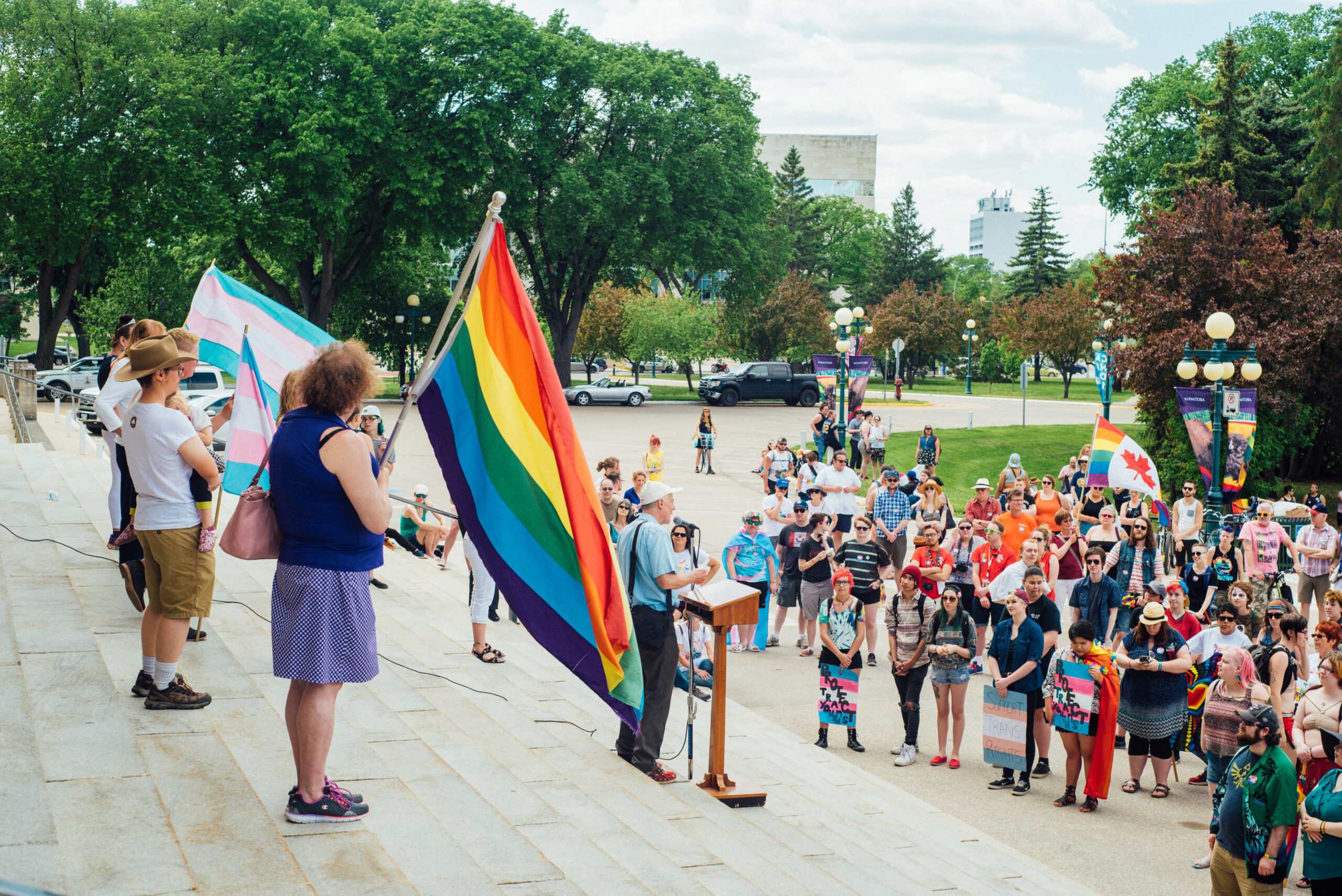This content was created by Xtra’s branded content team alongside Pride Winnipeg, separate from Xtra’s editorial staff.
Maybe it’s your first kiss. Maybe it’s letting loose on the dance floor. Maybe it’s the sheer joy of being surrounded by people just like you. But whatever your best memory, most of us never forget our first Pride.
Since its inception in 1987, Pride Winnipeg has grown from an afternoon march of a few hundred to a weeklong celebration of gender, sexual and relationship diverse identity.
Janine Brown, this year’s honorary youth marshal, attended her first Pride three years ago while she was in Grade 9. She’d hoped to attend the year before but a family commitment kept her away. So she marked it off in her calendar a full 12 months in advance to be sure her schedule was free. That year, she’d recently joined her school’s gay-straight alliance (GSA), which connected her with a group of LGBT youth she could go with.
“My first thought when I arrived was how beautiful everyone was,” she recalls. “It’s pure magic and so hard to grasp that you get to be a part of it. Everything felt unlimited. I was smitten with it and also taken aback.”
Beyond the glitter and glamour, Pride was critical in connecting her with a wider queer community, beyond just folks her age.
“You go from the biggest sense of community you have being 10 kids in your school’s GSA, to seas and seas of people,” she says. “I was always deemed a weird girl at school and my queerness was just another aspect that made me feel like an alien. It’s reassuring to know you’re not the only one who feels like they prefer wandering through space.”
Levi Foy’s first Pride was in 2004. He’d already come out and had a collection of queer friends, so attending felt like a natural part of his social life. Since then, his involvement has grown. He’s marched in the parade with Sunshine House and the University of Winnipeg, and now organizes the annual Two-Spirit Pow Wow.
“Your first Pride is kind of hard to describe and it’s going to be different for everyone,” says Foy, who also performs as his drag alter ego Prairie Sky. “You won’t understand it until you experience it yourself, so I think people should just come out, see what’s on offer, and take from it what you can.”
Though he’s lived in larger cities, he’s also spent time in more isolated centres, including Couchiching First Nation. Because of this, Foy sees Pride events as particularly important for folks from smaller communities as spaces to connect and come out.
“It can be a really fun opportunity for people who can’t celebrate themselves in their everyday lives,” he says. “It’s also really important for people who’ve been isolated from their families or communities in coming out. I’m really lucky because I’ve always had the support of my family but not everyone gets that, so Pride can be a space for those people to connect.”
For Rhiannon Lynn Frost, Pride was a life-changing moment. After coming out as trans in 2006 and subsequently being disowned by her family, she went to the event with nothing to lose.
She’d already connected with a local group who planned to march in the parade and spent the night before hanging out and making signs. The day of the parade she arrived in a floral print dress, her “Proud To Be Queer” sign in hand.
She was nervous waiting to begin the march. In 2006, the event still attracted hecklers who tried to rattle parade participants with jeers. Marchers had been prepped by Pride staff on how to deal with them. But fortunately, insults were kept to a minimum. And in subsequent years, hecklers have dwindled to the odd person with an anti-gay placard.
Realizing the safety a massive group of queers brings, her nerves gradually gave way to excitement and eventually joy. Since then, she’s been in the parade every year, and has also become a Pride volunteer.
As a queer elder who didn’t come out until her mid-40s, she has some words of advice for Pride virgins who might be debating attending their first event.
“Don’t be afraid to be how you are. Don’t let people put you in a box,” she says. “In coming out, I lost my family. But through Pride, I found a new family, and it’s helped me so much as I’ve continued my coming out process. The experience of Pride makes me stronger every time I’m there. And it all started with that first year.”
Pride Winnipeg
pridewinnipeg.com
May 25–June 3, 2018


 Why you can trust Xtra
Why you can trust Xtra